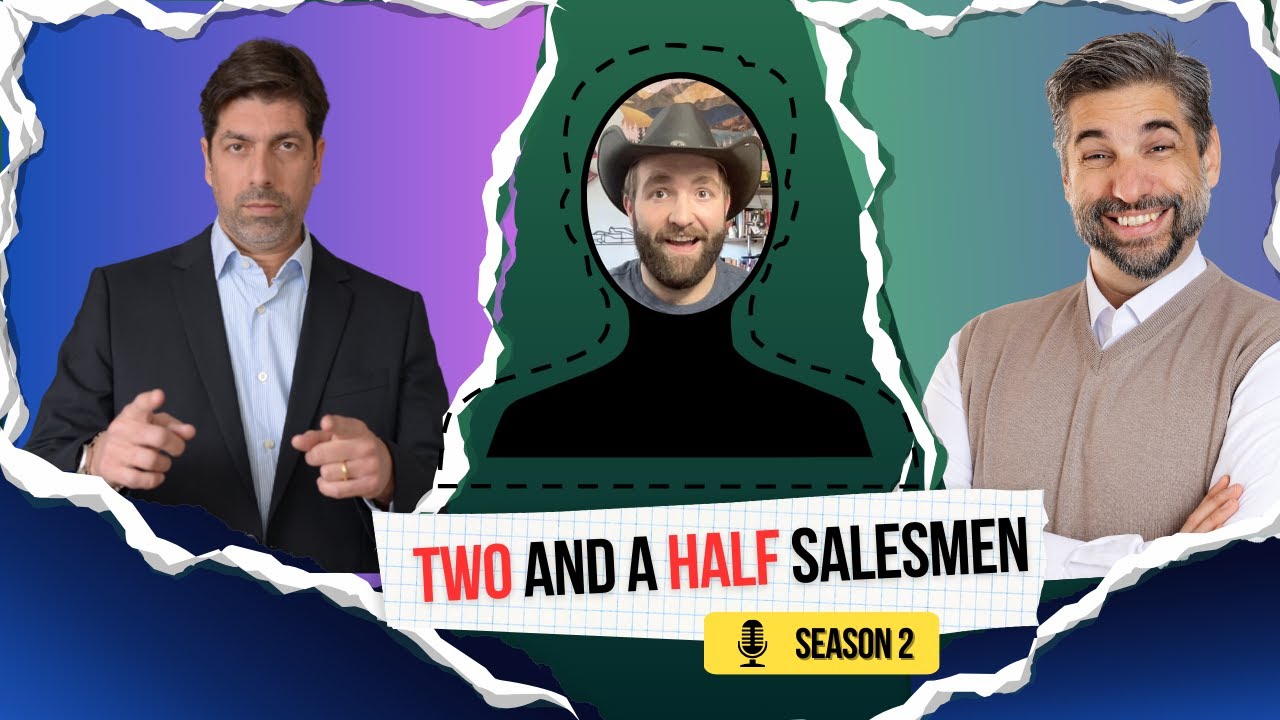The Age-Old Debate of Demoing in Discovery Calls
Should sales reps demo their product during the discovery call? This question sparks debate across the sales community. Some argue that demoing too soon can derail the qualification process, leading to misalignment between the prospect’s actual needs and the product’s capabilities. However, giving prospects a taste of the product early on can accelerate the sales cycle and help them grasp the value proposition quickly.
In this episode of To Demo or Not to Demo During Discovery, host Mario and co-host Noam dive into this complex topic with their esteemed guest, Casey Drake, VP of Sales at Endear. With a strong background in selling to small and mid-market businesses, Casey shares his firsthand experience and insights into when (and when not) to demo, providing you with a wealth of knowledge to enhance your sales strategies.
Meet Casey Drake: A Unique Sales Journey
Casey’s journey into sales was anything but conventional. Before venturing into the tech industry, he spent a year bartending and attempting to launch his own business. His first official sales role was at a startup selling to small and medium-sized hospitality companies. Over time, he ascended the ranks at Endear, transitioning from a founding Account Executive to VP of Sales within six years. This unique path has given him a fresh perspective on the sales process, one that challenges traditional sales orthodoxy while remaining firmly rooted in real-world experience.
Unlike many sales leaders, Casey never received formal sales training. Instead, he developed his approach through practical experience, using natural logic to guide his decisions. His ability to close deals within 90 days made him question whether sales processes were unnecessarily long and complicated. He brings a fresh perspective to the debate that challenges traditional sales orthodoxy while remaining grounded in real-world experience, inspiring you to rethink your own sales strategies.
Should You Ever Demo During Discovery?
The conversation starts with Mario’s strong stance: never do a demo during the discovery call. He believes discovery should be about deeply understanding the customer’s needs, motivations, and pain points—not jumping straight into product features. This empathetic approach ensures that the customer’s needs are at the forefront of the conversation, leading to a more effective sales process.
On the other hand, Casey sees value in demoing during discovery—at least in some cases. Having worked primarily with SMB and mid-market clients, he has found that a well-placed demo can sometimes enhance the discovery process. However, he agrees that it may be best to hold off until the later stages of enterprise sales cycles.
The Danger of Demoing Too Soon
Demoing too early in the process can have unintended consequences, such as:
Misalignment with prospect needs – Without thorough discovery, the demo might focus on the wrong features, missing the mark on what the prospect truly values.
Shortened sales cycles that don’t convert – While an early demo might seem like a shortcut, it can backfire if the prospect doesn’t yet grasp the full impact of their problem.
Feature obsession over value-based selling – Prospects may fixate on specific features rather than the broader business outcomes the product enables.
Why Discovery Matters More Than the Demo
The heart of the discussion revolves around why discovery calls exist in the first place. Customers often come to a call believing they know what they need, but it’s the salesperson’s job to dig deeper and qualify for the opportunity. An intense discovery process uncovers hidden pain points, aligns the solution to the customer’s strategic goals, and ensures that it is compelling and relevant when a demo takes place.
Customers today are more informed than ever. They do their research, compare solutions online, and often enter discovery calls expecting a quick validation rather than an interrogation. This shift in buyer behavior means sales teams must adapt. The challenge is to balance structured discovery with the customer’s expectations, creating an insightful and engaging conversation.
Defining the Demo: More Than Just a Feature Tour
One significant pitfall sales reps fall into is confusing a demo with a feature walkthrough. A true demo should be tailored to the prospect’s specific pain points and business objectives. A generic feature tour does little to create urgency or differentiate the solution.
Casey explains that his organization has identified seven core customer journeys. During a discovery demo, the goal is determining which journey makes the most sense for the prospect. This ensures that only the most relevant parts of the platform are shown, keeping the customer engaged and focused.
Key objectives of a discovery call should include:
- Understanding the prospect’s pain points
- Identifying the business problem driving the conversation
- Aligning the demo with the prospect’s needs instead of a generic product tour
The Discovery Demo Approach, A Hybrid Strategy
Rather than taking a black-and-white stance on demoing during discovery, Casey advocates for a hybrid approach: the Discovery Demo.
This approach involves showing only small, highly relevant product sections in response to specific customer pain points. Instead of overwhelming the prospect with every feature, the rep focuses on a targeted demonstration reinforcing the discovery conversation.
This ensures that prospects remain engaged while still progressing through the qualification process. By doing this, sales reps avoid the dreaded “no for now” response, where prospects delay a decision simply because they don’t yet see the solution’s full value.
Selling to Experts: The Challenge of Feature-Driven Buyers
In many industries, sales reps sell to highly knowledgeable buyers—engineers, developers, or technical experts. These buyers often want to dive straight into feature discussions.
However, focusing too much on features can lead to a transactional rather than a consultative sales process. Casey stresses that even when selling to technical buyers, connecting with them emotionally is essential to addressing their underlying pain points. This consultative approach, which focuses on understanding the customer’s needs and providing a tailored solution, is key to a successful sales process.
When a Demo Qualifies the ICP Instead of the Opportunity
One risk of demoing too early is that it may confirm that the prospect fits your ideal customer profile (ICP) without qualifying for the opportunity. Just because customers look like a good fit doesn’t mean they are ready to buy.
A common mistake is engaging with prospects still in the research phase rather than those actively seeking a solution. In these cases, the salesperson’s role is to nurture the lead and ensure they are ready before pushing a demo.
The ‘Land and Expand’ Strategy: Lowering Barriers to Entry
Another key takeaway from the discussion is the land and expand approach. Instead of pushing for a significant commitment upfront, sales reps offer low-cost, low-risk pilot programs to get prospects onto the platform. This allows the customer to see value in real-time, making it easier to expand the relationship later.
This method works particularly well for companies introducing new solutions into an existing tech stack. Since the customer isn’t replacing an old product, urgency is often low. A well-structured demo and a pilot program can help create that urgency.
So? When to Demo and When to Hold Back?
Should you demo during a discovery call? The answer depends on:
The complexity of the sale (enterprise vs. SMB/mid-market)
The prospect’s expectations and knowledge level
Whether the demo serves a strategic purpose in the sales cycle
The potential to provide a Discovery Demo instead of a full feature tour
Ultimately, the most effective sales reps adapt their approach based on the situation. Discovery should always come first, ensuring that it is relevant, engaging, and impactful when the demo does happen.
To dive deeper into this discussion, watch the entire conversation with Casey Drake on YouTube:


